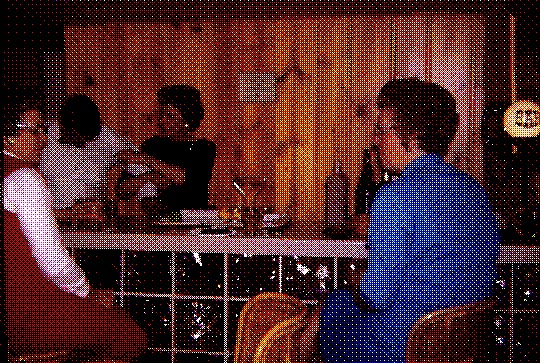ON THE PHONE–arranging, calling, sending voice memos–THE REQUEST
AT THE DOOR–welcoming, hugs and kisses, greetings–THE PORT
AT THE HALLWAY–taking your shoes, jackets, hats, apprehensions off–RADIO WAVES
AT THE KITCHEN COUNTER–cooking, arranging, plating, carrying–THE WIRES
AT THE DINNER TABLE–eating, talking, laughing, anecdote-sharing–ELECTRICITY
A sick host does not always…
…eat or join the dinner table.
… try the food they are making as they cannot eat most of the ingredients the guests find delicious. So, the sick host does not know how the food will turn out.
…nudge the guests to finish their food, the sick host knows that they might, at a later time, when energy is sparse, finish the leftovers.
…or ever… offer simple, flattened out solutions to problems that might be caused by an intersection of struggles. Often the sick host is not solution-oriented at all, they understand that time is needed to build a nest of sick hosts and guests to aid to one another. They understand that quick fixes might not soothe or exist for the chronically different.
A sick host always tries to have a nuanced understanding of waste…
… energy, time, food might all, at times, partially be wasted. The sick host cannot always steer for efficiency.
… a sick host attempt to allocate their own resources, by making use of offerings. What they don’t need might come in handy for a variety of guests.
A sick host (over)shares…
…the embodied secrets about the medical industrial complex.
…their ailments and their cause. Knowing that transparency might lead to a strengthening of bonds. They know that ailments are riddled with ghosts, that an intersection of different political forces exacerbate and frame sickness to be what it is considered today: only and always difficult.
…how much it, all of this, [gestures towards the act of hosting] means to them.
…what the infrastructure of their life looks like. This includes the social and technological infrastructure that assists or disables them. They understand that talk of (tech and social) infrastructure often arises when it is not smooth: when it is full of bugs, problems, errors, glitches, unease, discomfort, tension, friction. The sick host acknowledges that infrastructure is never free of any of these.
…the background, the food-making process, the recipes, the code. The sick host highlights the bugs, the decisions caused by illness.
what does the host dream of...
A sick host makes their home, their дом (dom, Slavic word for home), their domain a place where others can access, adjust, attempt to find things at, change the order of. It is not a ‘my home is yours’, but a ‘at times I have as much control over my body as I do of my house, and you may find meaning here where I cannot’.
The dustiness of onsite and virtual homes is acknowledged as a place where intimate shelter can take place.
